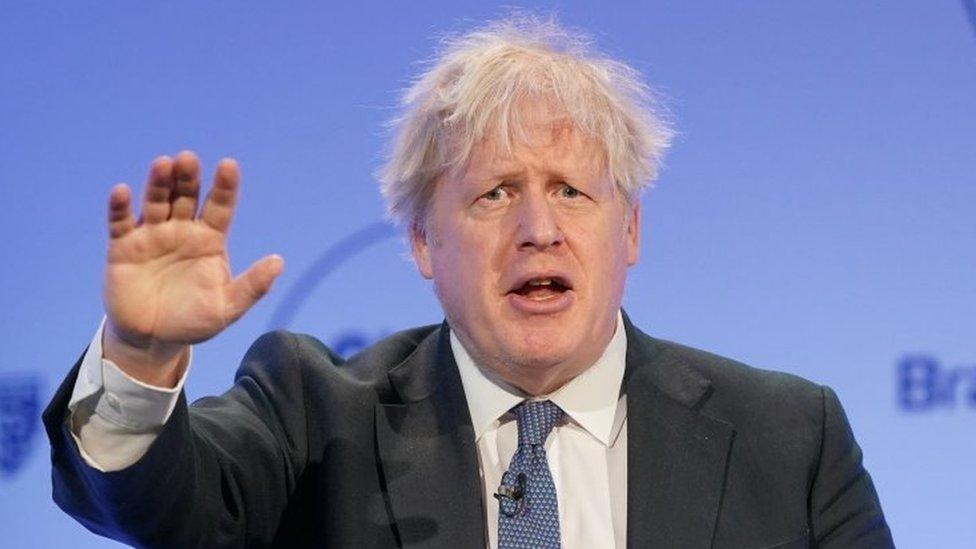Covid inquiry demands release of Boris Johnson WhatsApps
- Published
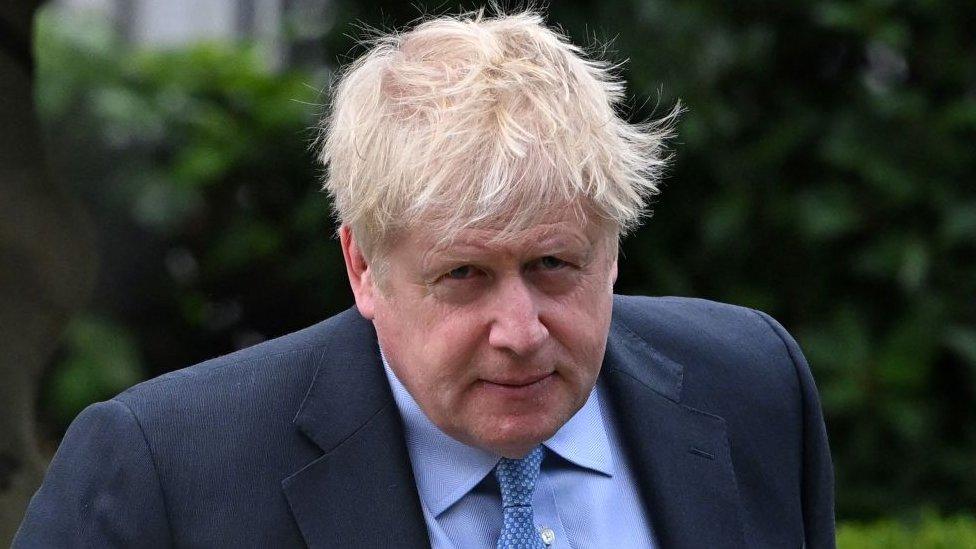
The official Covid inquiry has threatened the government with legal action if it does not release former PM Boris Johnson's unredacted WhatsApp messages and diary entries.
But the Cabinet Office has argued some of the material is "unambiguously irrelevant" to the inquiry.
Downing Street insisted the government was supplying "all relevant material".
Meanwhile, Mr Johnson will no longer work with government lawyers for the inquiry.
Allies of the former prime minister said he had lost confidence in the Cabinet Office after officials referred him to the police over further potential rule breaches during the pandemic.
Crossbench peer Baroness Hallett, the inquiry's chairwoman, has said a failure to hand over the unredacted material, which also includes Mr Johnson's notebooks containing contemporaneous notes, would be a criminal offence.
The prime minister's official spokesman said the issue related to some documents which were "clearly irrelevant", such as personal WhatsApp messages.
"It's our position that the inquiry does not have the power to compel the government to disclose unambiguously irrelevant material, given the precedent that this would set and its potential adverse impact on policy formulation in the future," he added.
However, Broness Hallett said passages initially assessed by the Cabinet Office to be irrelevant included discussions between the prime minister and his advisers about the enforcement of Covid regulations by the Metropolitan Police during protests following the murder of Sarah Everard.
She said those redactions had now been removed but "it was not a promising start".
The Covid-19 Bereaved Families for Justice campaign group said it was "outrageous that the Cabinet Office think they can dictate to the inquiry which of Boris Johnson's WhatsApp messages they can see".
"You really do fear the worst about what they're hiding," the group added.
Labour's deputy leader Angela Rayner called on the government to release the unredacted documents so "those responsible can be held to account".
The inquiry into the government's handling of the pandemic is due to begin hearings next month.
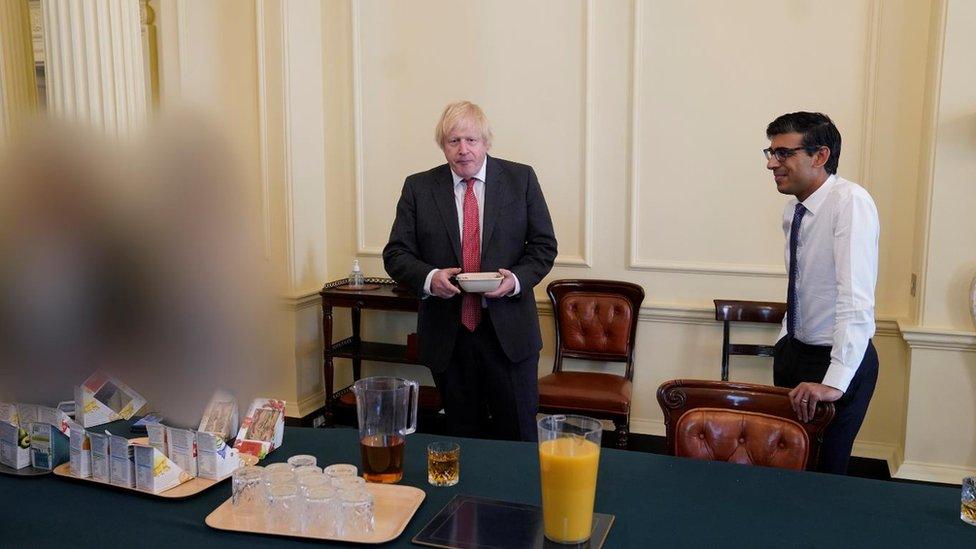
Both Boris Johnson and Rishi Sunak were fined for attending a birthday party in Downing Street
This week, civil servants referred information to two police forces after reviewing Mr Johnson's official diary as part of documents to be submitted to the public inquiry into the government's handling of the pandemic.
Mr Johnson was said to be "livid" that the material was passed to the police and had lost confidence in the objectivity of the leadership at the Cabinet Office - both ministerial and official.
He will now appoint new lawyers to represent him at the inquiry, which will be funded by the taxpayer.
The Cabinet Office said officials had been obliged to disclose the documents under civil service rules.
The Times, which first reported the story, external, says Mr Johnson has been referred to Thames Valley police because his ministerial diary revealed visits by family and friends to Chequers - the prime minister's country house in Buckinghamshire - during the pandemic.
But a spokesman for Mr Johnson has dismissed any claims of rule breaches as a "politically motivated stitch-up".
"The events in question were all within the rules either because they were held outdoors or came within another lawful exception," the spokesman said.
Downing Street rejected suggestions Mr Johnson was the victim of a stitch-up, stressing that neither ministers nor the PM were involved in the process and they were only made aware after the police had been contacted.
Thames Valley Police said it had "received a report of potential breaches of the Health Protection Regulations between June 2020 and May 2021 at Chequers, Buckinghamshire".
The Met Police released a similar statement but said their information related to potential breaches in Downing Street.
Both forces say they are assessing the information received but it is understood Mr Johnson has had no contact from the police.
Mr Sunak's press secretary said the prime minister "definitely" did not go to Chequers in contravention of coronavirus rules when he was chancellor during the pandemic.
Related topics
- Published24 May 2023
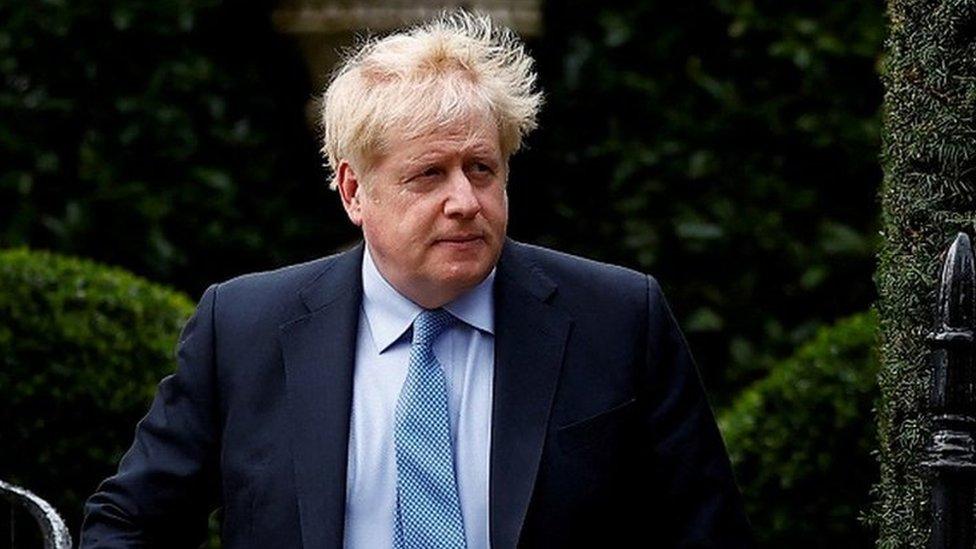
- Published23 May 2023
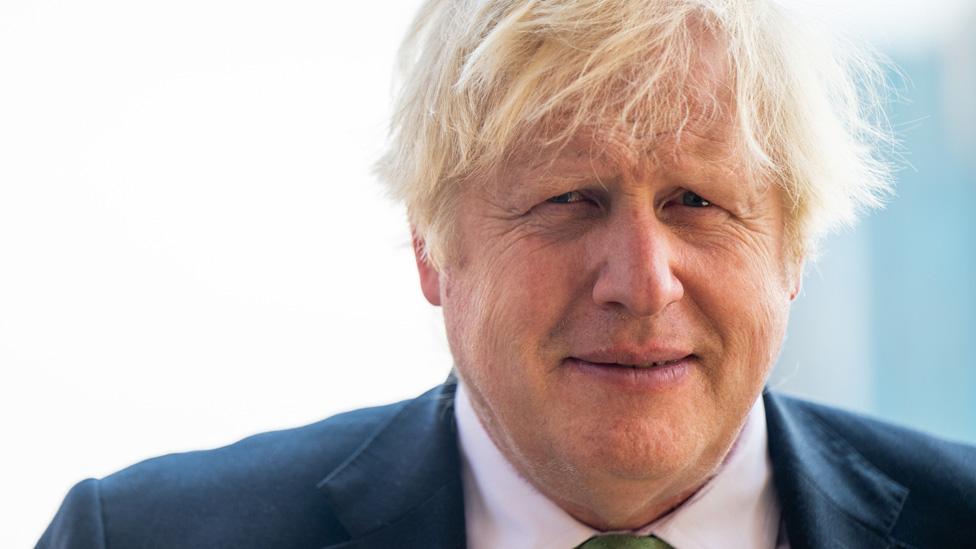
- Published24 May 2023
